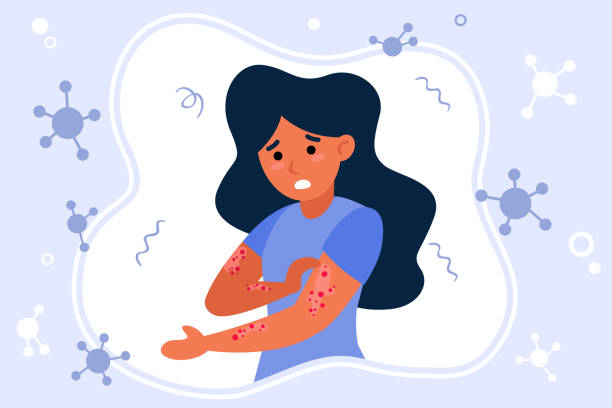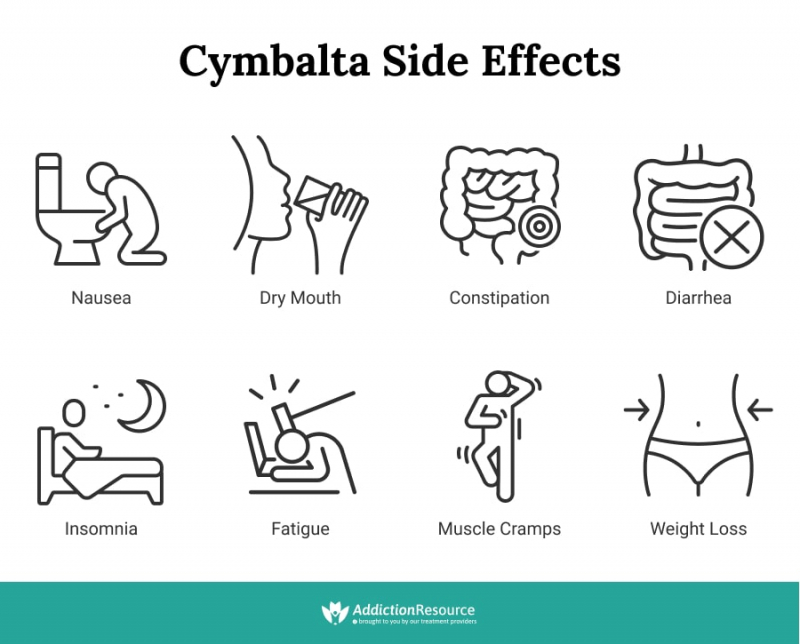Downsides

Top 3 in Top 7 Things to Know About Cymbalta
If you are between the ages of 18 and 60, do not take any other medications, and have no other medical conditions, you are more likely to experience the following side effects:
- Drowsiness, insomnia, nausea, headache, dry mouth, constipation, and dizziness are all possible side effects. Side effects are common with Cymbalta, and one in every six people discontinues use due to them. Cymbalta has also been linked to severe skin reactions and urinary retention.
- Suicidal ideation is more common in young adults under the age of 24 (similar to other antidepressants).
- If stopped abruptly or even when tapered, it is associated with a discontinuation syndrome. Anxiety, headache, dizziness, diarrhea, unusual sensations such as pins and needles, irritability, insomnia, increased sweating, and tiredness are all possible symptoms. On the advice of a doctor, taper off gradually.
- Serotonin syndrome (symptoms include mental status changes [such as agitation, hallucinations, coma, delirium], fast heart rate, dizziness, flushing, muscle tremor or rigidity, and stomach symptoms including nausea, vomiting, and diarrhea) can be caused by interaction or overdosage.
- In people with undiagnosed bipolar disorder, it may trigger a manic episode.
- May cause a drop in blood pressure, which is especially noticeable when moving from a sitting to a standing position and increases the risk of falling. Some people's blood pressure may be raised as well.
- May increase the risk of bleeding; exercise caution when taking other medications that increase the risk of bleeding (such as aspirin and NSAIDs).
- May cause a drop in total body sodium (hyponatremia); elderly people, those taking diuretics, or those who are already dehydrated may be more vulnerable.
- Cymbalta dosage should be reduced in people who have mild to moderate kidney or liver disease. Avoid if you have severe kidney or liver disease. There have been reports of Cymbalta-related fatal liver failure.
- Diabetes patients' blood sugar control may be harmed. Glaucoma patients may experience an angle-closure attack. People with a history of seizures should avoid it. It has the potential to interact with a variety of other drugs, including those metabolized by cytochrome p450 2D6 or 1A2 enzymes (such as nortriptyline or flecainide).
Seniors and children, people with certain medical conditions (such as liver or kidney problems, heart disease, diabetes, seizures), or people who take other medications are more likely to experience a broader range of side effects.








